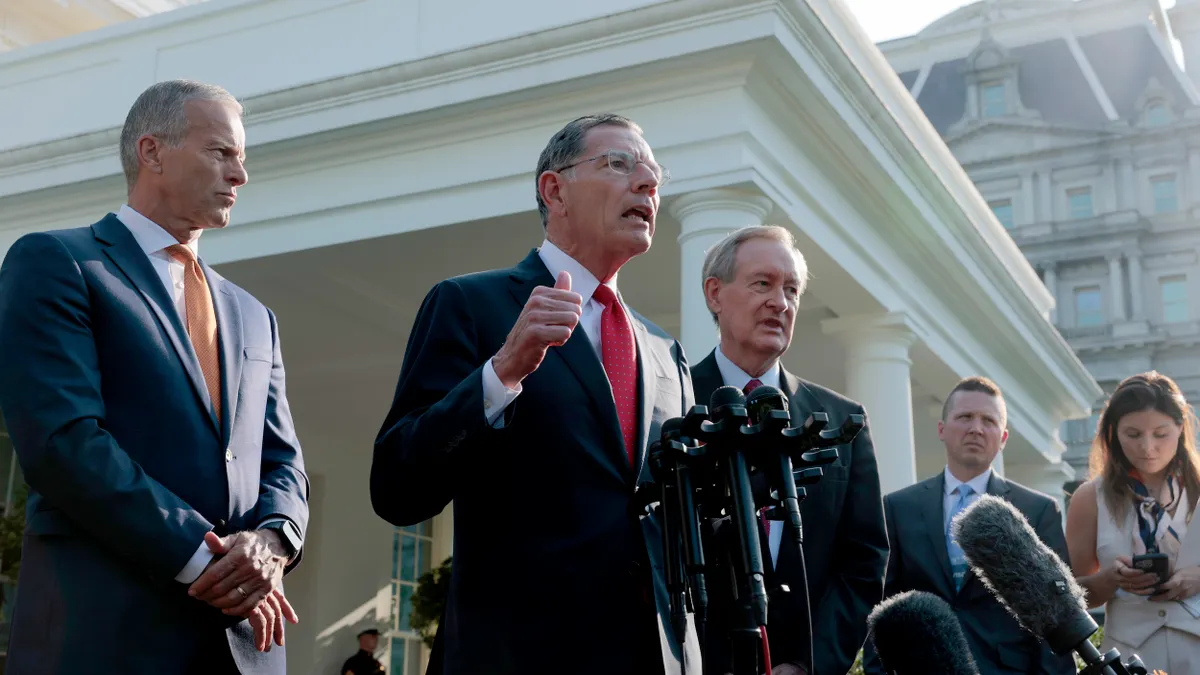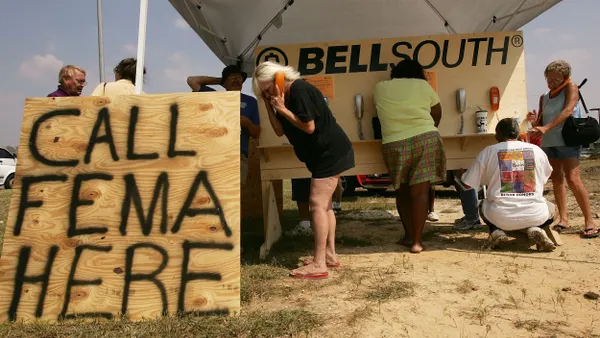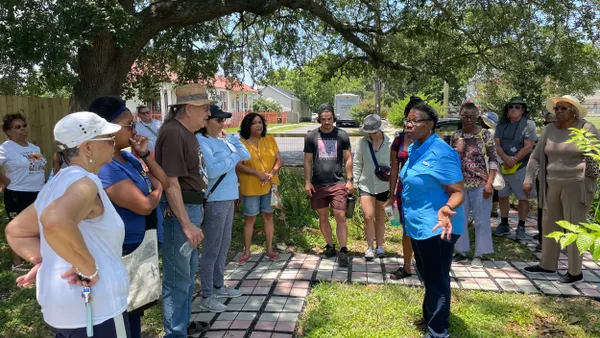Dive Brief:
-
A coalition of 175 mayors, city council members and county commissioners from 45 states and the District of Columbia signed a letter asking members of the Senate Finance Committee to preserve clean energy tax credits that would be rescinded in the One Big Beautiful Bill Act.
-
The bill, currently being debated in the Senate, calls for rapidly phasing down tax credits for clean energy sources, including wind, solar and geothermal, that were part of the 2022 Inflation Reduction Act.
-
The May 29 letter states the local leaders “are concerned that repealing these clean energy tax credits could create economic uncertainty in our communities.”
Dive Insight:
The Inflation Reduction Act made 13 clean energy tax credits available to state and local governments and public power utilities through elective pay, a platform that allows them to receive a payment equal to the full value of a tax credit when they build qualifying clean energy projects, even if they do not owe Federal income taxes.
“For the first time, state and local governments, as well as essential nonprofit community organizations – such as houses of worship, hospitals, and schools – can access the same clean energy tax credits as the private sector through elective pay,” the letter states. “This has led to major projects in our communities like solar installations for town halls, alternative fueling infrastructure and charging stations for local government fleets of electric and alternative fueled vehicles, electric school buses, and more.”
More than 500 state and local governments are accessing the incentives, according to the letter. Repealing them would “raise energy costs by $489 a year for families, result in up to 97,000 net fewer American jobs, hurt private sector investments, slow economic growth, and make the U.S. less globally competitive,” the letter states.
Laura Jay, deputy director of Climate Mayors, a bipartisan network of nearly 350 mayors, said in an email that clean energy tax credits “provide an undeniable economic boost to cities and towns nationwide.” Mayors are using them to update critical local infrastructure and invest in clean energy solutions, she said. “They are a win-win for improving affordability, growing jobs, and addressing climate change, which is why mayors and local leaders of all stripes are calling on Congress to preserve them.”
This week the Solar Energy Industries Association released an analysis showing that 330,000 jobs are at risk and $286 billion in local investment could be erased if the bill, which would also end tax credits for solar leasing companies and homeowners, is enacted in its current form.











